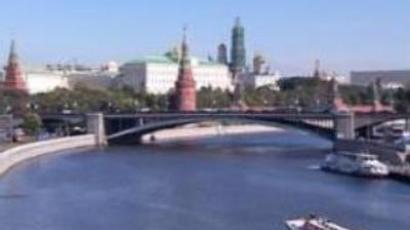Focusing on the positive of Russian PR

The PR environment in Russia is changing with more global companies bringing an international perspective to how it can work. Business RT spoke with Shirley Hanley - Ryder about how the Russian PR world is changing.
RT: What are the differences between Russia and developed economies in the use of PR?SHR: “Russia is developing fast and the need for public relations is growing as Russian companies increasingly realise the need to develop and protect their corporate image and reputation.Corporate and Social Responsibility initiatives are increasingly appearing on PR agendas here and I think international companies are becoming standard bearers for CSR as well as employee relations, good working practices, great customer service and exemplary marketing.As a public relations’ agency, the main difference I can see here is in media relations.Western media operate on a much more ethical basis.Here ‘paid for’ editorial is quite commonplace and so companies have come to expect their ‘story’ to be told when and where they want it, provided they pay for it.This is very different to developed countries where coverage that is paid for is clearly marked as an advertorial or media promotion.So the relationship between company or PR agency and journalist is quite different here.Grayling doesn’t ever pay for editorial and therefore we work hard with our clients to present information which is of genuine news and interest to the media and its readers or viewers.Instead of just relying on sending out pressreleases, here we’re more likely to have one-to-one conversations and meetings with individual publications to develop exclusive features for our clients.This is especially true with lifestyle magazines where we want to feature our client’s consumer brands.” RT: How do you compare working in PR in Russia and England?SHR: “I work in an office of 36 bi-lingual staff and it’s not a lot different to being in a public relations agency in Central London.Our International clients expect the same service from their Russian agency, as they do from their agencies in developed economies, and our Russian staff have to quickly learn Western ways of reporting and responsiveness. However, as the manager of a Russian business, what has been difficult is the employment law here which allows staff at all levels to move on with just two weeks notice which is very difficult in a business which operates and builds its success on client relationships.The need to move on, earn more money and get on the next rung of the career ladder seems more urgent in young people here than I experienced, for instance, in the UK.”RT: Does Russia have a different cultural approach?SHR: “There seems to be a general lack of trust among Russian people and an expectation to be let down. Also, Russian clients tend to see their PR agency more as a supplier of a service than as a partner or extension of their team which can inhibit the achievement of the best results.”RT: Do you believe that Russian companies and organizations use PR effectively?SHR: “Our clients are largely international brands looking for PR support in local markets so they have a good understanding of the use and effectiveness of PR.I think Russian companies are only just waking up to the real potential and importance of PR.As Russian people become more Westernised in their opinions and preferences, they will start to reject companies and brands which don’t live up to their newfound beliefs and expectations and those companies will need to address the projection of their corporate image and reputation in order to survive.”RT: Do you believe that business in general in Russia suffers from negative PR?SHR: “There has been a lot of media coverage about the problems of corruption in Russian business and this inevitably gives Russian business a poor image. Research I’ve done recently suggests that even Russian people don’t trust Russian brands so I think we have a long way to go before Russian brands will be accepted on an international stage, unless of course it relates to areas where Russia has acclaimed expertise and knowledge – oil and gas and vodka spring immediately to mind!”RT: Do you believe that Russian companies could use PR more effectively? Particularly in a global context? SHR: “There’s an old saying that ‘no amount of PR can sell a bad product’.If Russian companies have a ‘clean’ act then PR can help them enormously by communicating their values and working practices to key stake holders and presenting them as a good company to do business with, or as a great brand to buy, from a company which has quality, health, safety and great customer service at its core.Where it goes wrong is when companies present an image which is at odds with reality, because when the blow comes it hits that much harder.”













